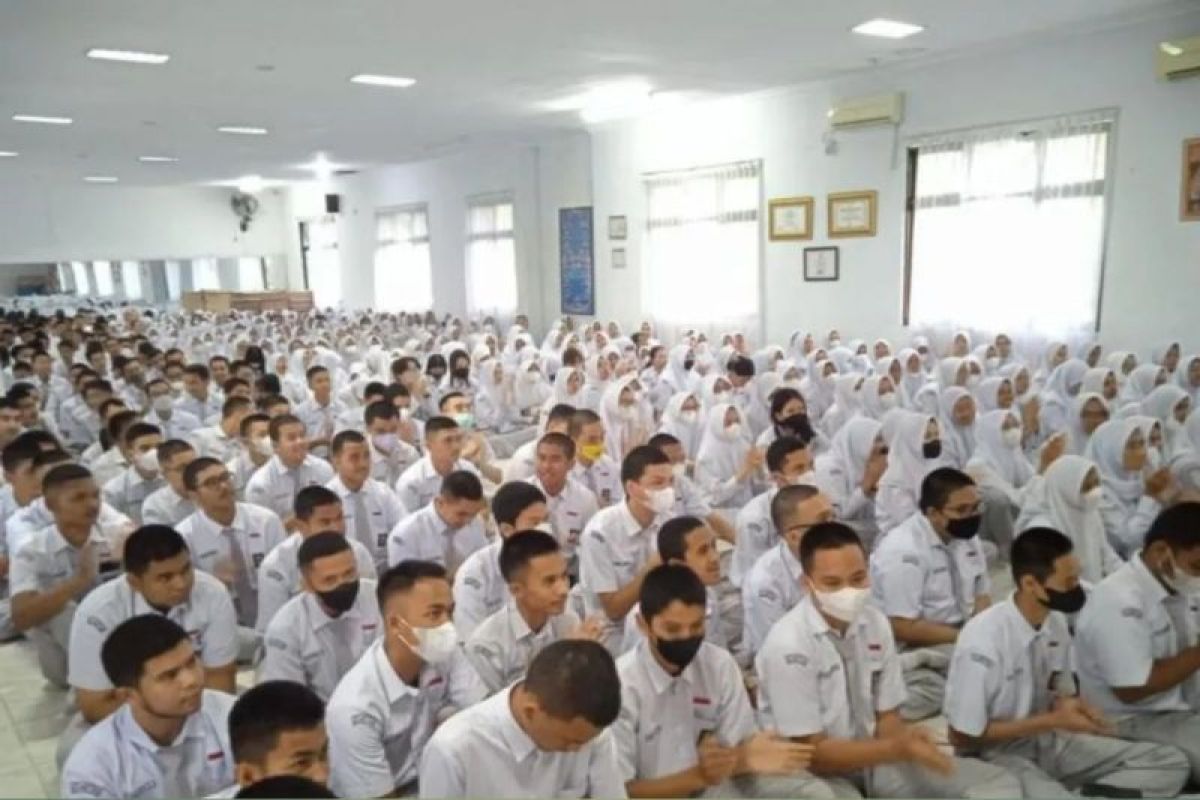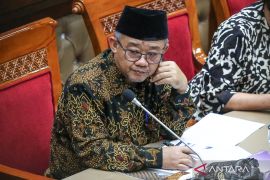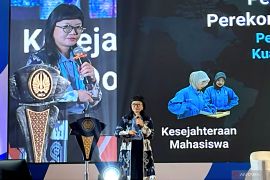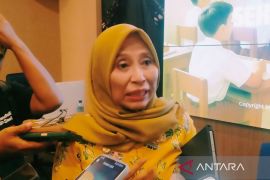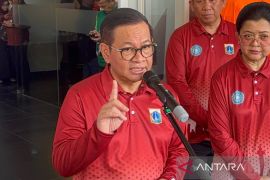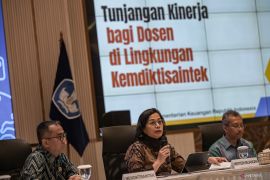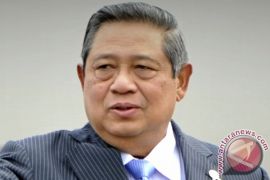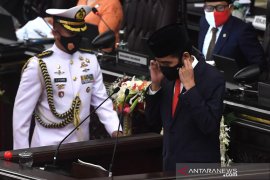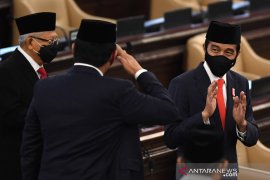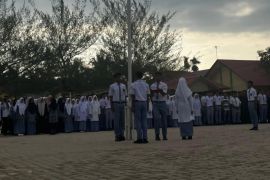Indeed, education is the core of development. It is key to developing intelligent people, skilled workers, scientists, and entrepreneurs who drive the economy.
Compared to the previous periods, the allocated budget for 2026 is bigger, thereby raising hopes for a direct impact on children across the country.
The school renovation program that is carried out in 2025 is evidence that investment in education is not an empty promise.
As many as 13,800 schools and 1,400 madrasahs (Islamic schools) have been renovated, allowing students to learn in a safer and healthier environment.
In addition to the physical building, the large budget is also directed at strengthening programs related to people's basic needs.
The government has also rolled out its tuition-free school program, Sekolah Rakyat (People's School), to provide formal education to marginalized children and eventually break the cycle of poverty.
It has also initiated the Sekolah Garuda (Garuda School), which is designed to focus on science, technology, engineering, and mathematics, providing opportunities to children from low-income families to get the best facilities.
Another strategic step that has been taken is the Free Nutritious Meals (MBG) program, which is aimed at ensuring the nutritional fulfillment of children, given the risks posed by nutritional issues to the development of children's potential.
The program not only fights stunting but also promotes awareness that academic achievements are closely related to a healthy lifestyle.
Furthermore, the big budget planned for 2026 will also give a significant push to research.
With bigger funding support, universities can conduct strategic research, not only for scientific publications but also for the country's downstreaming efforts.
The downstreaming of research becomes key to turning research results into tangible products that provide added value to the national economy.
Thus, education and research can jointly become the driving force of industrial downstreaming.
Great optimism
Several steps have been made with a clear direction: ensuring the large budget will not end up as mere numbers. It must be used for real action that creates a direct impact on students, teachers, and the general public.
This fosters great optimism that with a strong foundation, this nation is preparing to make a major leap forward in education.
The large education budget is not only a symbol of commitment but also a momentum to tackle long-standing disparities in the country.
One of the classic issues in Indonesia's education is inequality. While children in big cities get to enjoy excellent facilities, many children in remote areas go to school in shabby buildings.
With its school renovation program and distribution of 288,000 interactive whiteboards, reaching remote villages, the government seeks to close the gap in digital and physical infrastructure.
The distribution of interactive whiteboards, which allows schools to be connected with the best teachers despite the location, is essential to ensure that access to quality learning is not limited by geographical locations.
Children in villages have the right to get quality education, just as children in big cities do. That way, technology serves as a bridge to realize equitable access to knowledge.
In addition to students, the government also focuses on teachers. The government has increased the salary of civil servant teachers and provided assistance to non-civil servant teachers.
This step is taken not merely to improve welfare but also as a form of appreciation to teachers who have played the role of a spearhead in education. Better welfare is expected to make teachers more focused, enthusiastic, and creative in teaching.
Furthermore, the government also pays attention to the health sector by opening 148 new medical study programs in 57 faculties as a strategic step to address the issue of doctor shortage in Indonesia.
This step also opens more opportunities for children in regions to become doctors, eliminating the perception that becoming a doctor is only feasible for those from higher-income families.
Amid great optimism for the education sector, there are challenges that must be addressed. While efforts to improve infrastructure and access continue to be made, the quality of learning remains something that cannot be overlooked.
Education is not just measured by the number of new schools or study programs opened, but by the quality of graduates. In the Education 4.0 approach, problem-solving, collaborating, and innovating abilities are essential indicators.
To this end, the improvement of facilities must go hand in hand with the improvement of teachers' competency and supervision of learning quality.
Indonesia must not be trapped in the euphoria presented by large numbers without ensuring the actual implementation and transparent and accountable budget utilization.
Education is not a short-term project; it is a long-term investment whose results will only really be felt in decades.
To this end, consistency and continuity are the prerequisites to ensure the existing policies will not end up stopping midway.
The great optimism must be preserved with an awareness that improving education is essentially a collective work. While the government sets the directions and provides support, the implementation depends on the collaboration of all parties, namely teachers, parents, communities, and businesses.
With a joint movement, there is a big hope that the large budget could result in the emergence of Indonesia's Golden Generations, who can compete at the global level.
Nevertheless, it must be accompanied by good management, fair budget allocation, teachers' quality improvement, and a guarantee for sustained efforts.
That way, Indonesia's education will not only advance in terms of numbers, but also in quality, which is more impactful for the community.
Related news: Minister revises teacher allowance to Rp274 T in State Budget Bill
Related news: Indonesia raises education funding to strengthen human capital
Related news: Sizeable education budget boosts downstreaming via research: RI Govt
Translator: Sean Filo, Raka Adji
Editor: Azis Kurmala
Copyright © ANTARA 2025
